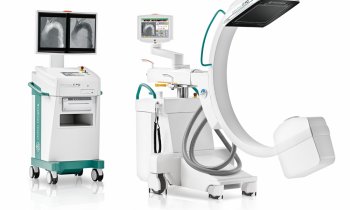New link between gum and cardiovascular diseases
Researchers at the Virginia Commonwealth University (VCU) found out that patients with generalised aggressive periodontitis generally had elevated plasma levels.
Dental treatment has decreased in many areas where dental services have suffered health service cutbacks, but this, in turn, this could dent healthcare budgets in a bigger way.
Severe periodontitis is characterised by chronic infection and inflammation of the gums - and this may contribute to these patients’ elevated risk for heart disease and stroke.
In the December issue of the Journal of Lipid Research, researchers at the Virginia Commonwealth University (VCU) reported finding that patients with generalised aggressive periodontitis generally had elevated plasma levels of a particularly bad subclass of the low density lipoprotein (LDL) called small-dense LDL.
The researchers suggest that it may be beneficial to test periodontitis patients for changes in their plasma lipoprotein profiles, so that available medication can be taken if necessary.
‘Previous research has shown that people who have predominantly small-dense LDL in their blood are at a three- to six-fold increased risk of heart disease and stroke,’ said lead author Rik van Antwerpen PhD, an assistant professor of biochemistry at VCU. ‘A person may have predominantly small-dense LDL without having alarmingly high blood levels of cholesterol. Therefore, unhealthy levels of small-dense LDL are not always detected in regular cholesterol tests.’
According to the study, a second factor influencing the cardiovascular risk of patients with severe periodontitis may be platelet activating factor acetylhydrolase (PAF-AH), an enzyme that is associated with small-dense LDL. PAF-AH is able to break down some of the inflammatory, atherogenic components of LDL. Dr Van Antwerpen said that the enzyme may lower the atherogenic effects of LDL, and that the observed decrease of LDL-associated PAF-AH activity in patients with severe periodontitis may increase the cardiovascular risk of these patients.
The study involved only 12 patients with generalised aggressive periodontitis and 12 control subjects without periodontal disease. Currently, Dr van Antwerpen and his colleagues are evaluating a greater number of patients with varying degrees of periodontal infection and inflammation, as they work towards establishing testing guidelines for periodontitis patients.
In the research, supported by grants from the National Institutes of Health, Dr Van Antwerpen collaborated with Harvey A Schenkein PhD, Director of the Clinical Research Centre for Periodontal Diseases, and chair of the Department of Periodontics, VCU School of Dentistry. And, at the VCU School of Medicine: Suzanne E Barbour PhD, associate professor in the Department of Biochemistry, and John G Tew PhD, professor in the Department of Microbiology and Immunology. Experiments were conducted by Miguel Rufail, a graduate student in the VCU Department of Biochemistry.
Source: Virginia Commonwealth University
Severe periodontitis is characterised by chronic infection and inflammation of the gums - and this may contribute to these patients’ elevated risk for heart disease and stroke.
In the December issue of the Journal of Lipid Research, researchers at the Virginia Commonwealth University (VCU) reported finding that patients with generalised aggressive periodontitis generally had elevated plasma levels of a particularly bad subclass of the low density lipoprotein (LDL) called small-dense LDL.
The researchers suggest that it may be beneficial to test periodontitis patients for changes in their plasma lipoprotein profiles, so that available medication can be taken if necessary.
‘Previous research has shown that people who have predominantly small-dense LDL in their blood are at a three- to six-fold increased risk of heart disease and stroke,’ said lead author Rik van Antwerpen PhD, an assistant professor of biochemistry at VCU. ‘A person may have predominantly small-dense LDL without having alarmingly high blood levels of cholesterol. Therefore, unhealthy levels of small-dense LDL are not always detected in regular cholesterol tests.’
According to the study, a second factor influencing the cardiovascular risk of patients with severe periodontitis may be platelet activating factor acetylhydrolase (PAF-AH), an enzyme that is associated with small-dense LDL. PAF-AH is able to break down some of the inflammatory, atherogenic components of LDL. Dr Van Antwerpen said that the enzyme may lower the atherogenic effects of LDL, and that the observed decrease of LDL-associated PAF-AH activity in patients with severe periodontitis may increase the cardiovascular risk of these patients.
The study involved only 12 patients with generalised aggressive periodontitis and 12 control subjects without periodontal disease. Currently, Dr van Antwerpen and his colleagues are evaluating a greater number of patients with varying degrees of periodontal infection and inflammation, as they work towards establishing testing guidelines for periodontitis patients.
In the research, supported by grants from the National Institutes of Health, Dr Van Antwerpen collaborated with Harvey A Schenkein PhD, Director of the Clinical Research Centre for Periodontal Diseases, and chair of the Department of Periodontics, VCU School of Dentistry. And, at the VCU School of Medicine: Suzanne E Barbour PhD, associate professor in the Department of Biochemistry, and John G Tew PhD, professor in the Department of Microbiology and Immunology. Experiments were conducted by Miguel Rufail, a graduate student in the VCU Department of Biochemistry.
Source: Virginia Commonwealth University
23.05.2006
More on the subject:









